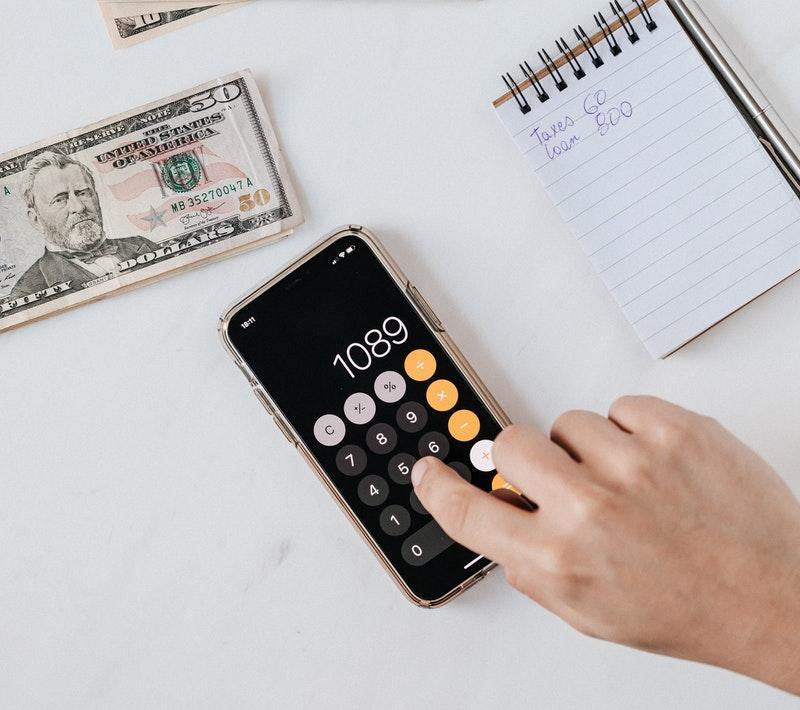10 Proven Strategies to Help you Save More Money

10 Proven Strategies to Help You Save More Money |
Are you struggling with maintaining a healthy saving habit? Do you want to save but you just don’t know how to go about it? Has your financial situation changed? Has your income declined? Do you want to save for a project that is important to you? Now is the perfect time to review your budget and adopt new saving habits. If you’ve made that excellent choice to be more intentional about how you handle money, the next steps shouldn’t be too hard. Here are a few proven strategies that will help you save more money without suffering too much. Let’s go!
While this might seem like the obvious thing to do, it is also the hardest to do. Drafting a budget is all fun and games until you have to stick to it. This is the point where your impulses and everyday inclinations are put to the test. No matter how much you earn in a month, without a proper budget, it would feel like your money disappears constantly without a trace. Set aside a certain percentage for food and all your necessities. These necessities include your rent, bills, fees, etc. this should be the first thing that you consider in your budget. Set aside a certain percentage to save and ensure you actually stick to it. There are a few mobile apps available today that can help you make budgeting easier. Some of them include Mint, YNAB (You Need A Budget), Pocketguard, etc.
2. Check Your Impulse Buying
Impulse buying, like the name suggests, involves making purchases that you never planned for in advance. When it comes to our impulses, our money is never safe. When you visit the mall to get some vegetables, make sure you’re not adding a carton of milk that you probably don’t need at that particular time. Impulse buys do not necessarily have to be really expensive and unnecessary purchases. Most times, we buy things that are necessary (like food, clothes, etc) but the problem is timing. If you are working with a budget, work with your budget. If you have noticed that you are actually addicted to impulse buying, here is something you could do – play the waiting game. The waiting game means you have to wait two days before making a large purchase. To avoid buying unnecessary things, wait 48 hours before making the purchase. This is a good tip that will help you avoid any regrets. And, instead of making an unnecessary expense, why not add to your savings account?
3. Do Not Buy All the Latest Stuff
Every single year comes with a new version of whatever you have – clothes, shoes, gadgets, phones, etc. While you might think it is so important for you to keep up with the trends, we are here to tell you that it isn’t. Currently, there are phones that cost over $1,000. With the speed driving new technologies and innovations, some cell phones could cost as much as $2,000 in five years. While this decision depends largely on the quality of your life, it will definitely help your savings account if you do not have to buy every single upgrade that is released. If you are going to save money, you will have to pass on the latest technologies and upgrades. It doesn’t make you ‘uncool’ or ‘old’ if you decide to use old stuff. It only means that you are making wise, intentional decisions for yourself and your financial future.
4. Create Saving Goals
I know this should have probably come as the first thing, but as they say, it is better late than ever! Like we all know, your dreams are merely dreams until you write them. Then, they become goals. Setting goals make your dreams achievable. Are you saving towards something? A new apartment, probably? Whatever you might be saving for, set up a specific amount you must attain within a specific time frame. Now that you have a target, it will be easier to keep you on track and focused on the end goal. After setting your goals, create a budget that would help you achieve them in time. There are a few apps that have been created to help you create saving goals and will also serve as reminders, in case you forget. Some of those apps are Twine, Acorns, Digit, etc.
5. Work on Your Debts
Yeah, this is not the fun part. If you have a large debt burden, it kind of trumps the whole idea of saving up. It is advisable that you first focus on clearing all your outstanding debts before making any big saving plans. This is because no matter how much you save, it will never feel like yours because you are locked down by debt. Currently, the U.S’s household debt stands at a whopping $13.86 trillion. A crazy figure, I know, but the truth nonetheless. Also, while you are making new purchases, ensure that you are debt-free. It makes absolutely no sense taking out a loan for a brand new car when you already have a six-figure outstanding debt. Eliminate your debt and then, you can save with a quieter heart. And if you have no debts, then, good for you!

6. Get a Side Hustle
After taking out the rent, electricity bill, and all the never-ending expenses, there’s little left of your salary. It takes a will of iron to even set some aside to save. But when you have another stream of income, saving becomes easier. Plus, your savings cut increases! Imagine increasing your savings cut from $30 to over $100, you’ll be meeting your saving goals in no time. There are a few side hustles you can do, especially online. In a recent article, we detailed 15 Ways to Earn Money Quickly Online. Freelancing is the usual go-to. There, you can sell your skills and rake in a lot of money. There are online platforms that will help you market your skills (there’s a pay cut, of course). These platforms include (but are not exclusive to) Fiverr, Upwork, Freelancer, PeoplePerHour, and many others. There are even stories of people leaving their 9-5 and turning their side hustle into a main hustle! So, get in on it and boost your savings.
7. Eat Out Less
An average American household spends an estimated $4,000 on take-outs, fast food meals, and fine dining at restaurants in a year. That is a whole lot of money that could be put to better use if you decided to cook at home instead of eating out all the time. Also, while you shop for food, have a coupon or two in handy. They help to cut costs. Instead of bingeing on every food out there, dedicate more time to meal planning. Pack your own lunch, instead of just living on pizza for twenty-four hours. Not only would you be saving a lot of money by cooking at home, but you’ll also be eating healthier because you are more aware of what your body is taking in!
8. Learn DIY Solutions
From mending your torn shirt to fixing your kitchen sink, there are a lot of things that you could learn to fix yourself. You can go from spending a couple hundred dollars on one task to spending close to nothing just by doing it yourself! Youtube is one of the best places to find free tutoring for some of the things you need to fix or make around your house. Learn how to sew your clothes (instead of just replacing them), fix a faulty faucet, decorate your house, and so on. This is one such solution for your household needs.
9. Keep Your Loose Change in a Piggy Bank
So, after a long day out, you get back home and discover you have a dollar and three cents in your shirt pocket. They don’t look like they will be able to do much, so you just leave them in the abandoned ashtray on your eating table. A better course of action will be to save them in your special piggy bank. It’s not like you’re going to miss them anyways. Keep up this habit for a month and return to your piggy bank. You would discover that you have saved up a reasonable amount which you can spend on something essential or just deposit in your bank. As they say, little drops of water make a mighty ocean.
10. Be a Minimalist
A minimalist is a person who likes to keep things very simple. Basically, it is a life of voluntary simplicity. It means keeping things to their barest minimum – living in a smaller house, having fewer clothes, fewer gadgets, a smaller car, and simple eating habits. Living as a minimalist has nothing to do with your financial capacity, but if you’re saving towards something, you might need to cut down on some unnecessary expenses and luxuries. If you did not grow up that way, being a minimalist might be hard to adjust to. In that case, start small. Find a few things in your space that you know you really do need, discard/sell them or find their cheaper alternatives (if they are necessary). Start with a few items. In time, you will notice a change in your living expenses and saving habits.

These are some of the proven strategies to help you save more money. By consistently implementing these strategies, you’ll be able to save more money than you ever imagined. Do you know a tip or two you could share that has been working for you? Please, do so in the comment section.
All pictures are gotten from Pexels and no attribution is required
She's an African, Afro-American breed. She's way too radical in her writing style. She adds in a little childish nature to the mix, representing all you want to be but can't.

